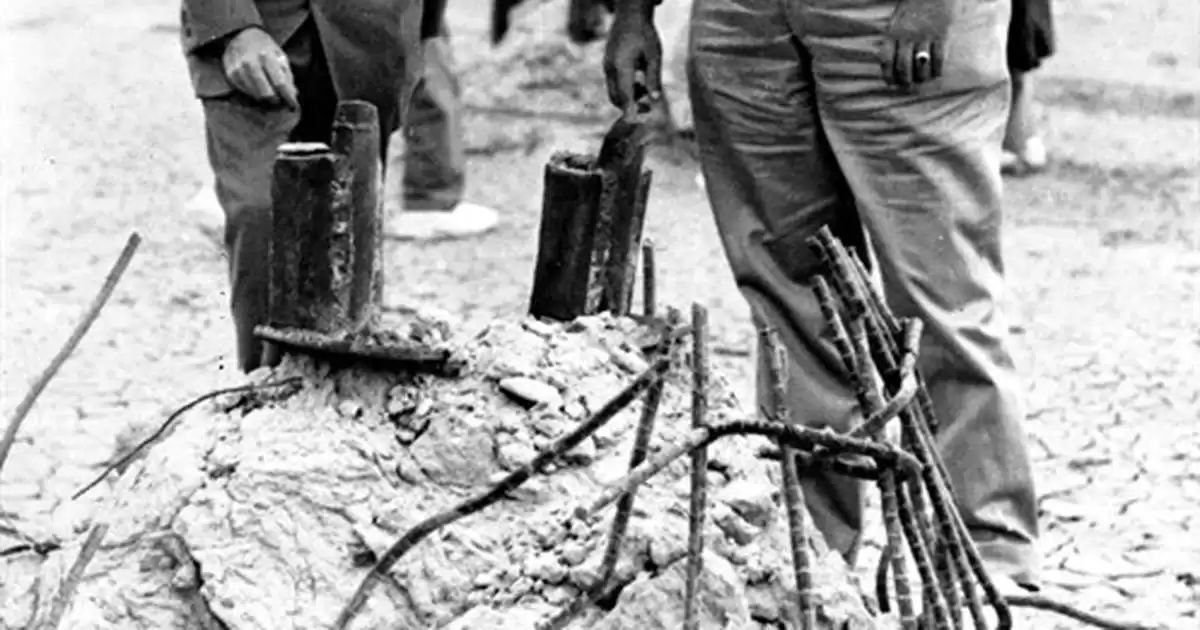Robert Oppenheimer and the Manhattan Project Saved My Dad's Life
Debate over the atomic bombings of Hiroshima and Nagasaki resurfaces.
The film "Oppenheimer" will be released this Friday, and it has sparked discussions about the legacy of the man behind the Manhattan Project. While there is no denying that Oppenheimer was a genius, there is also a sense of conflict within him regarding the consequences of his actions in bringing about the atomic age and ending World War II. However, it is important to consider whether atomic energy would have eventually been weaponized even without his involvement.
The movie will undoubtedly reignite the debate surrounding the effectiveness and ethics of dropping two atomic bombs to end the war in the Pacific. On one side, there are those who firmly believe that the killing of a massive number of civilians was unnecessary. It is worth noting that the fire-bombing of Tokyo likely resulted in more casualties than the bombings of Hiroshima and Nagasaki combined.
Those who hold this viewpoint may be pacifists or simply contrarians who argue that America could have warned the Japanese about the devastating power of their "super weapon." In fact, leaflets were dropped to warn civilians in Hiroshima to evacuate, a practice that had been carried out throughout the war. However, there are also individuals who contend that a demonstration of the atomic bomb's power through a controlled explosion in an open field could have been sufficient to compel the Japanese to surrender.
On the other side of the argument are people like myself who believe that, despite the horrific nature of the bombings, they ultimately brought an end to a global conflict. Personally, I am convinced that without those bombs, I would not exist today because my father, a Marine who fought in multiple battles, would not have survived. His experiences in the war, including the assault on Sugar Loaf Hill in Okinawa, where thousands of American lives were lost, made him acutely aware of the dangers he faced.
However, it was during the occupation of Tokyo Bay that my father truly realized the magnitude of the potential loss of life. As part of Task Force 31, he witnessed the sight of thousands of white flags, placed by the Japanese home forces on gun emplacements surrounding the bay to signal their surrender. This moment gave him chills and made him reflect on the devastating consequences that an invasion would have brought upon both sides. Operation Downfall, the planned invasion of Japan, was estimated to result in millions of casualties, with hundreds of thousands of Allied soldiers, sailors, and Marines losing their lives.
When my father stood on the deck of his ship, looking at those hills, he knew that his survival odds would have been slim had he been part of the invasion force. After three years of avoiding injury, the reality of the situation hit him hard. This perspective is crucial to understanding the significance of the decision to drop the atomic bombs.
So, when critics of the film "Oppenheimer" label it as a celebration of a "mass murderer" or depict Oppenheimer as "death, the destroyer of worlds," I have a different perspective. My father, along with half a million other servicemen, returned home and built lives because of the Manhattan Project. While it is undoubtedly tragic that two more cities were destroyed, these events likely saved countless lives on both sides. I am grateful to Robert Oppenheimer and the brilliant minds behind the Manhattan Project for allowing my father to come home, meet his wartime pen pal, and live to the age of 100.
In conclusion, the release of the film "Oppenheimer" prompts us to reflect on the complex issues surrounding the use of atomic bombs to end World War II. It is a topic that continues to evoke strong opinions, with valid arguments on both sides. By acknowledging the devastating consequences of the bombings while also recognizing the potential loss of life that could have occurred without them, we gain a more comprehensive understanding of this pivotal moment in history.











Comments on Robert Oppenheimer and the Manhattan Project Saved My Dad's Life